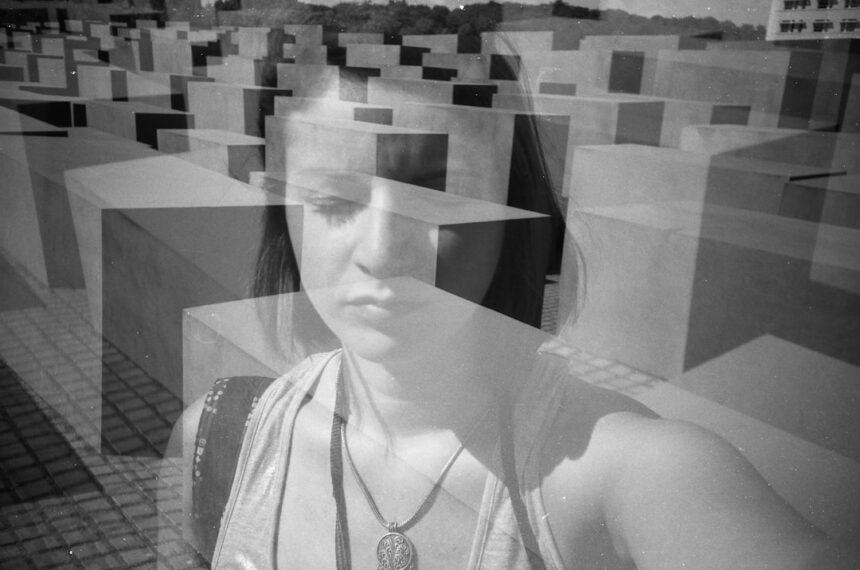Depersonalization and derealization are psychological phenomena that can leave you feeling detached from your own thoughts, feelings, or sense of self. When you experience depersonalization, you may feel as though you are an outside observer of your own life, as if you are watching yourself from a distance. This can create a sense of unreality, where your emotions and experiences seem disconnected from your true self.
On the other hand, derealization involves a sense of detachment from your surroundings. You might perceive the world around you as strange or dreamlike, as if everything is happening in a movie rather than in real life. These experiences can be unsettling and disorienting, often leading to confusion and anxiety.
While they can occur in response to stress or trauma, they can also manifest without any clear trigger. Understanding these phenomena is crucial for recognizing their impact on your mental health and daily life. By gaining insight into what depersonalization and derealization entail, you can begin to navigate the complexities of these experiences and seek appropriate support.
Key Takeaways
- Depersonalization and derealization are dissociative disorders that involve feeling disconnected from oneself and the world around them.
- Symptoms of depersonalization include feeling like an outside observer of one’s thoughts and actions, while derealization involves feeling like the world is unreal or distorted.
- Causes of depersonalization and derealization can include trauma, stress, anxiety, and substance abuse.
- Depersonalization and derealization can affect daily life by causing difficulties in relationships, work, and overall functioning.
- Treatment options for depersonalization and derealization may include therapy, medication, and lifestyle changes, while coping strategies and seeking support are also important for managing these disorders.
Symptoms of Depersonalization and Derealization
The symptoms of depersonalization and derealization can vary widely from person to person, but they often share common threads. You might find yourself feeling emotionally numb or disconnected from your body, as if you are merely a spectator in your own life. This can lead to a profound sense of isolation, making it difficult to connect with others or engage fully in your daily activities.
You may also experience a distorted sense of time, where moments feel elongated or compressed, further contributing to the feeling of unreality. In addition to these emotional symptoms, physical sensations may accompany depersonalization and derealization. You might notice changes in your perception of touch, sound, or sight, leading to an altered experience of reality.
For instance, familiar sounds may seem muted or distant, while colors may appear less vibrant. These sensory distortions can exacerbate feelings of anxiety and confusion, making it challenging to ground yourself in the present moment.
Causes of Depersonalization and Derealization

The causes of depersonalization and derealization are complex and multifaceted. Often, these experiences arise as a response to overwhelming stress or trauma. You might find that significant life events—such as the loss of a loved one, a traumatic accident, or prolonged exposure to high-stress situations—can trigger these feelings of detachment.
In such cases, your mind may employ depersonalization and derealization as coping mechanisms to protect you from emotional pain. Additionally, certain mental health conditions can contribute to the development of these symptoms. Anxiety disorders, depression, and post-traumatic stress disorder (PTSD) are often linked with depersonalization and derealization experiences.
Substance use can also play a role; for instance, the use of hallucinogenic drugs or excessive alcohol consumption may lead to temporary episodes of these phenomena. Understanding the underlying causes is essential for addressing the symptoms effectively and finding appropriate treatment options.
How Depersonalization and Derealization Affect Daily Life
| Impact | Effects |
|---|---|
| Emotional Impact | Feelings of detachment, numbness, and emotional blunting |
| Social Impact | Difficulty connecting with others, feeling isolated |
| Work/School Impact | Decreased productivity, difficulty concentrating |
| Physical Impact | Heightened anxiety, panic attacks, and fatigue |
| Everyday Activities | Difficulty enjoying hobbies, feeling disconnected from surroundings |
Living with depersonalization and derealization can significantly impact your daily life and overall well-being. You may find it challenging to engage in social situations or maintain relationships due to feelings of disconnection from yourself and others. This detachment can lead to misunderstandings with friends and family, who may not fully grasp what you are experiencing.
As a result, you might withdraw from social interactions, leading to feelings of loneliness and isolation. Moreover, these experiences can interfere with your ability to focus on tasks or responsibilities. Whether at work or in personal pursuits, the sensation of being detached from reality can hinder your productivity and motivation.
You may struggle with decision-making or feel overwhelmed by everyday choices, further exacerbating feelings of anxiety. Recognizing how depersonalization and derealization affect your life is crucial for developing strategies to cope with these challenges.
Diagnosing Depersonalization and Derealization
Diagnosing depersonalization and derealization typically involves a comprehensive evaluation by a mental health professional. During this process, you will likely discuss your symptoms in detail, including their frequency, duration, and any potential triggers. The clinician may also inquire about your medical history and any existing mental health conditions to rule out other possible explanations for your experiences.
It’s important to note that depersonalization and derealization are often classified as dissociative disorders when they become persistent or recurrent. The Diagnostic and Statistical Manual of Mental Disorders (DSM-5) outlines specific criteria for diagnosing these conditions, which can help guide treatment options. By seeking a professional diagnosis, you can gain clarity about your experiences and access the support you need.
Treatment Options for Depersonalization and Derealization

Treatment for depersonalization and derealization often involves a combination of therapeutic approaches tailored to your individual needs. Psychotherapy is one of the most effective methods for addressing these symptoms. Cognitive-behavioral therapy (CBT) can help you identify negative thought patterns associated with your experiences and develop healthier coping strategies.
Through therapy, you can work on grounding techniques that bring you back to the present moment and help reduce feelings of detachment. In some cases, medication may be prescribed to alleviate symptoms associated with underlying mental health conditions such as anxiety or depression. Antidepressants or anti-anxiety medications can help stabilize your mood and reduce the intensity of depersonalization and derealization episodes.
However, medication is typically used in conjunction with therapy for optimal results. Collaborating with a mental health professional will allow you to explore the most suitable treatment options for your unique situation.
Coping Strategies for Depersonalization and Derealization
In addition to professional treatment, there are several coping strategies you can implement in your daily life to manage depersonalization and derealization symptoms effectively. Mindfulness practices can be particularly beneficial; engaging in mindfulness meditation or deep-breathing exercises can help anchor you in the present moment. By focusing on your breath or observing your surroundings without judgment, you can cultivate a sense of awareness that counters feelings of detachment.
Another effective strategy is grounding techniques that involve using your senses to reconnect with reality. For example, you might carry a small object that has personal significance or engage in activities that stimulate your senses—such as listening to music, feeling different textures, or savoring flavors—can help bring you back into your body and environment. Experimenting with various coping strategies will allow you to discover what works best for you in managing these challenging experiences.
Seeking Support for Depersonalization and Derealization
Seeking support from friends, family, or support groups can be invaluable when navigating the challenges of depersonalization and derealization. Sharing your experiences with trusted individuals can help alleviate feelings of isolation and provide a sense of understanding. You might find that others have faced similar struggles, which can foster connection and validation.
Support groups—whether in-person or online—can also offer a safe space for sharing experiences and coping strategies with others who understand what you’re going through. Engaging with a community that shares similar challenges can provide comfort and encouragement as you work toward managing your symptoms.
Understanding the Connection Between Depersonalization and Derealization
Understanding the connection between depersonalization and derealization is essential for grasping how these experiences manifest in your life. While they are distinct phenomena, they often occur together; many individuals who experience one will also encounter the other at some point. This interconnectedness highlights the complexity of dissociative experiences and underscores the importance of addressing both aspects when seeking treatment.
Recognizing that depersonalization often serves as a protective mechanism against overwhelming emotions can help you approach these experiences with compassion rather than fear. By understanding the relationship between these phenomena, you can better navigate their impact on your mental health and work toward healing.
The Impact of Depersonalization and Derealization on Mental Health
The impact of depersonalization and derealization on mental health can be profound. These experiences often contribute to heightened levels of anxiety, depression, and stress, creating a cycle that can be difficult to break. The feeling of being disconnected from oneself or reality can lead to increased self-doubt and negative self-perception, further exacerbating mental health challenges.
Moreover, individuals experiencing chronic depersonalization or derealization may find it difficult to engage in therapeutic processes fully. The detachment from emotions can hinder progress in therapy, making it essential to address these symptoms directly within treatment plans. By acknowledging the impact on mental health, you can take proactive steps toward recovery.
Managing Depersonalization and Derealization in the Long Term
Managing depersonalization and derealization in the long term requires ongoing commitment to self-care and mental health support. Regular therapy sessions can provide a consistent space for processing emotions and developing coping strategies tailored to your needs.
Incorporating healthy lifestyle choices—such as regular exercise, balanced nutrition, adequate sleep, and stress-reduction techniques—can also play a significant role in managing symptoms over time. By prioritizing self-care practices that promote overall well-being, you empower yourself to navigate the challenges associated with depersonalization and derealization more effectively. In conclusion, understanding depersonalization and derealization is crucial for recognizing their impact on your life.
By exploring symptoms, causes, treatment options, coping strategies, and support systems available to you, you can take meaningful steps toward managing these experiences effectively. Remember that seeking help is not only okay but essential for fostering healing and reclaiming a sense of connection with yourself and the world around you.
Depersonalization and derealization are complex experiences that can make individuals feel disconnected from themselves or their surroundings, often leading to a sense of living in a dream or observing life from outside their body. For those seeking a deeper understanding of these phenomena, an insightful article on the topic can be found on Unplugged Psych. This resource delves into the nuances of these experiences, offering valuable perspectives and coping strategies. To explore more about depersonalization and derealization, you can visit the article on Unplugged Psych.
LEARN MORE About Unmasking the Mysteries Behind Depersonalization and Derealization
FAQs
What is depersonalization and derealization?
Depersonalization is a mental health condition where a person feels detached from themselves, as if they are observing themselves from outside their body. Derealization is a similar condition where a person feels detached from their surroundings, as if the world around them is unreal or distorted.
What are the symptoms of depersonalization and derealization?
Symptoms of depersonalization may include feeling like an outside observer of one’s thoughts or body, feeling like one is in a dream, or feeling emotionally numb. Symptoms of derealization may include feeling like the world is artificial or colorless, feeling like time is distorted, or feeling like objects are changing in shape or size.
What does depersonalization and derealization feel like?
People with depersonalization may describe feeling like a robot or an alien in their own body, or feeling like they are living in a fog. People with derealization may describe feeling like they are in a movie or a dream, or feeling like the world is flat and lifeless.
What causes depersonalization and derealization?
Depersonalization and derealization can be caused by various factors, including trauma, stress, anxiety, depression, substance abuse, or certain medical conditions. It is often a coping mechanism in response to overwhelming stress or trauma.
How are depersonalization and derealization treated?
Treatment for depersonalization and derealization may include therapy, medication, stress management techniques, and addressing any underlying mental health conditions. Cognitive-behavioral therapy (CBT) and mindfulness-based approaches have been found to be helpful for some individuals. It is important to seek professional help for an accurate diagnosis and appropriate treatment plan.




